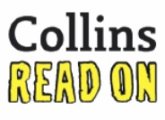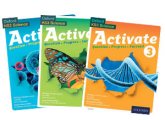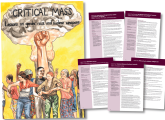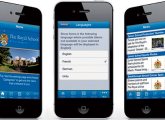In article 10 of his 12-part series, Justin Hancock of DO… explains why we need to stop treating porn as a discrete subject, and cover the fundamentals of this pertinent topic as part of RSE.
For Sexual Health Week 2017, the focus was ‘Let’s Talk About Porn’. Whilst practitioners worry about the effect that exposure to porn has on young people, the risks are often overstated.
In fact, most young people report not having seen a sexual image at all. The Net Children Go Mobile project, from the London School of Economics, found that only 25% of 14–16 year olds had encountered a sexual image.
The most common sources for exposure to sexual images were television/film and social media sites – which indicates that the kinds of sexual images that young people were seeing were mostly not ‘porn’. Half of those young people who had seen an image didn’t like it, yet most report having developed effective strategies for dealing with them.
Research in this area suggests that sexual images don’t have a simple ‘effect’ on a young person. Young people actively filter and develop their own critical understanding of what they encounter. This process often happens with a concomitant increased interest in sex and/or in their own emerging sexual identities.
It’s all very complex and this complexity is something that young people are both very aware of and take part in. Talking about porn is also made even more complex by our own anxieties about young people having access to images that weren’t available when we were their age. Also, the seemingly weekly news coverage about sexting and the ethics of porn can make this a very difficult topic to teach.
As Natika Halil, CEO of the FPA says: “We know some professionals working with young people worry about porn, so for Sexual Health Week we wanted to open up the discussion around what it is we really need to talk about.”
DO… is about making RSE valuable to every student in the classroom: whether they are having sex, or looking at porn, now; in the future; or ever. So rather than teaching porn as a discrete topic, we need to teach the fundamentals. This way porn is a small topic within the broader framework of what makes for truly valuable RSE. There are clear prompts throughout the DO… lesson plans for young people to talk about porn – in fact it is there in every lesson. How it may affect how we feel about ourselves; what it teaches us about gender and sexuality; how porn teaches little about relationships; how sexual scripts can get in the way of having consensual sex; or how porn teaches very little about safer sex. Our unique problem solving activity for the final lesson also includes a scenario around non-consensual use of porn. Porn can certainly be taught as a standalone topic where it’s needed. Specialist training and resources are available from members of the DO… Collaboration: such as FPA’s training course fpa.org.uk/young-people-sexuality-and-digital-world and my own ‘Planet Porn’ resource pack. But we say it’s best to start with DO…
For resources and support to make great RSE happen in your school, visit dorseforschools.com.
Take-home messages
Teaching the topic of porn in RSE is complex and needs to be treated with sensitivity. We need to talk about how we can teach about this effectively whilst also making sure it’s inclusive for all young people. We suggest that it’s best to start with the fundamental topics of RSE.
Our resources are brought to you by the leading experts in RSE. They’re all completely free. In addition to lesson plans we have a wealth of resources for teachers and school leaders – including self-reflection activities to help you feel more confident in making RSE about your students, not you. We’ve also redesigned the website to tailor it to your individual needs.










